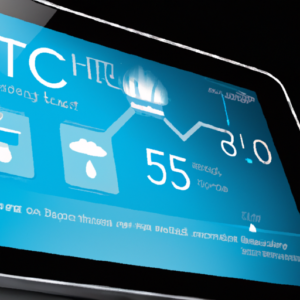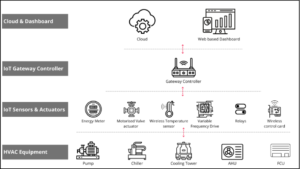

HVAC Services
Get Professional Repairs From The Area's Trusted HVAC Technicians. Ask About Our Services! We Offer Professional Heating & Cooling System Repairs And Guarantee Long-Lasting Results.
Got Question? Call us: (850) 678-2665Financing
The Importance of HVAC Systems in Modern Buildings
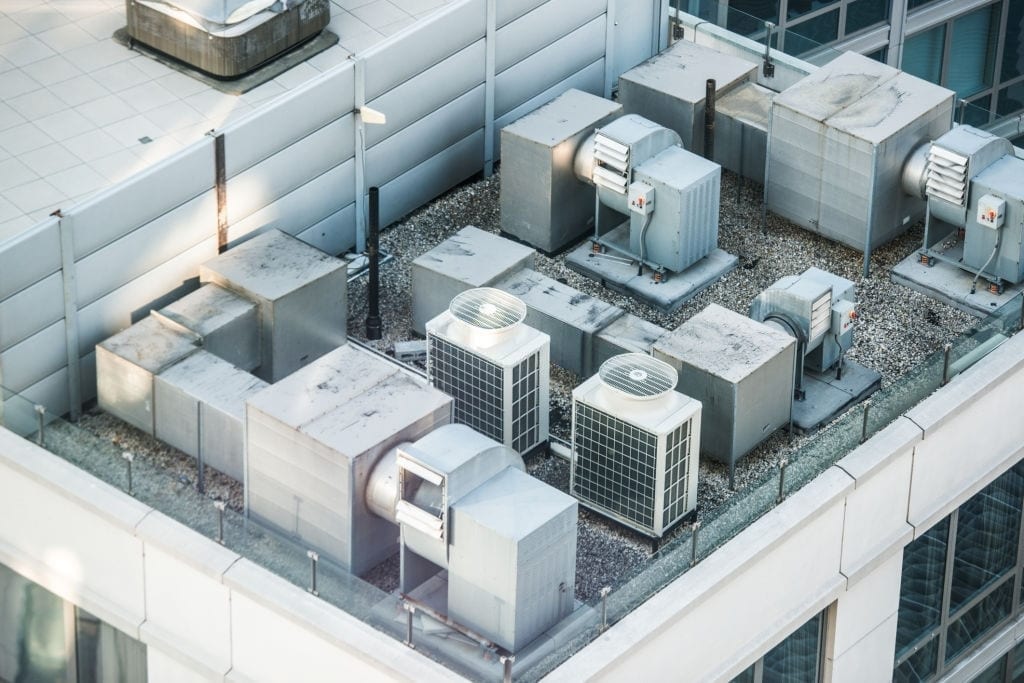
In the modern world, HVAC systems play a crucial role in ensuring comfort and well-being in buildings. From maintaining the ideal temperature and humidity levels to improving air quality, these systems have become an integral part of our daily lives. They not only provide the much-needed comfort but also contribute to energy efficiency and cost savings. Without a doubt, HVAC systems have revolutionized the way we live and work, making them an essential component of any modern building.
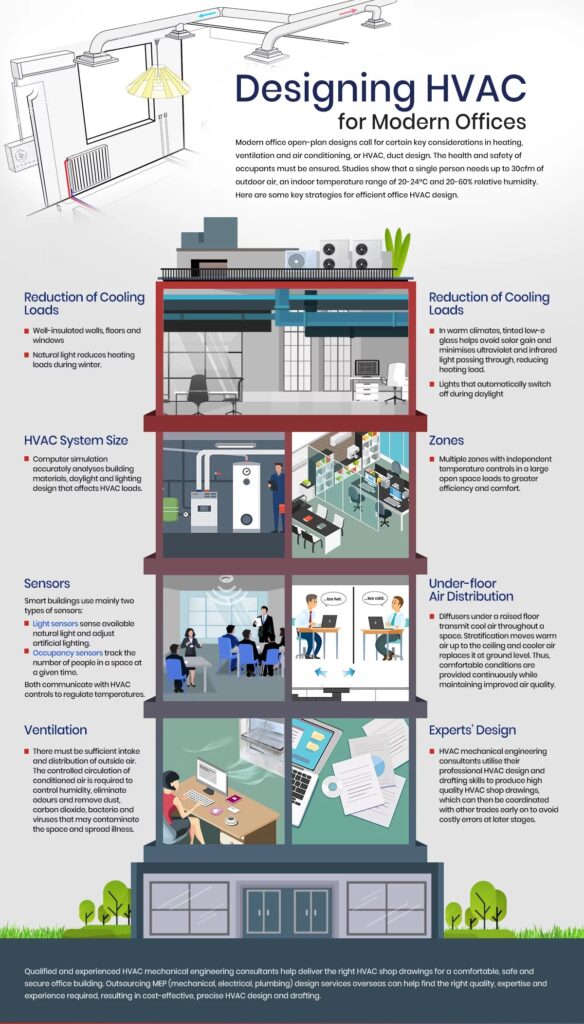
This image is property of www.xscad.com.
1. The Role of HVAC Systems in Modern Buildings
HVAC (Heating, Ventilation, and Air Conditioning) systems play a crucial role in modern buildings, providing comfort, maintaining indoor air quality, and ensuring the health and safety of occupants. With the advancement in technology and increasing awareness about energy conservation, HVAC systems have become an integral part of any building. Let’s explore the various aspects of HVAC systems and understand their significance.
1.1 Energy Efficiency
One of the primary benefits of HVAC systems in modern buildings is their energy efficiency. These systems are designed to optimize energy consumption by effectively heating, cooling, and ventilating the indoor spaces. By using advanced technologies and efficient equipment design, HVAC systems can significantly reduce energy consumption compared to traditional heating and cooling methods.
1.2 Indoor Air Quality
Indoor air quality is a crucial factor that affects the health and well-being of building occupants. HVAC systems play a significant role in maintaining good indoor air quality by filtering and purifying the air. Proper ventilation, temperature control, and humidity regulation ensure a comfortable and healthy environment for everyone inside the building.
1.3 Comfort and Productivity
Comfort plays a key role in enhancing productivity in any workplace or living environment. HVAC systems contribute to creating a comfortable atmosphere by providing precise temperature control, reducing noise, and accommodating individual preferences through zoning options. When occupants feel comfortable, they can focus better and perform tasks more efficiently.
1.4 Health and Safety
The health and safety of occupants are of utmost importance in any building. HVAC systems contribute to maintaining a healthy indoor environment by preventing the spread of diseases, controlling allergens, and detecting harmful substances like carbon monoxide. Proper ventilation and air purification systems help to keep the air clean and reduce the risk of respiratory illnesses.
1.5 Equipment Longevity and Maintenance
Regular maintenance of HVAC systems ensures their longevity and efficient operation. By investing in routine maintenance, building owners can extend the lifespan of the equipment, minimize repair costs, and prevent unexpected system failures. Proper maintenance also improves the overall performance of HVAC systems, ensuring optimal energy efficiency.
1.6 Sustainability and Environmental Impact
In today’s world, sustainability and reducing environmental impact have become critical considerations. HVAC systems play a significant role in promoting sustainability by conserving energy, reducing greenhouse gas emissions, and adopting eco-friendly refrigerants. By investing in energy-efficient HVAC systems, building owners can contribute to a greener and more sustainable future.
2. Energy Efficiency in HVAC Systems
2.1 Reduced Energy Consumption
One of the main advantages of HVAC systems is their ability to reduce energy consumption compared to traditional heating and cooling methods. HVAC systems utilize advanced technologies such as variable speed motors, energy recovery ventilation, and efficient equipment design to optimize energy efficiency. This results in lower energy bills and reduced environmental impact.
2.2 Cost Savings
When HVAC systems are energy-efficient, they lead to significant cost savings for building owners. By reducing energy consumption, these systems help lower utility bills and decrease operational expenses. The initial investment in energy-efficient HVAC systems is often offset by long-term savings, making it a wise financial decision for building owners.
2.3 Government Regulations and Incentives
Governments worldwide have recognized the importance of energy efficiency and have implemented regulations and incentives to encourage its adoption in buildings. Many countries offer tax credits and rebates to building owners who invest in energy-efficient HVAC systems. Following government regulations not only helps in reducing energy consumption but also ensures compliance and prevents potential fines.
3. Indoor Air Quality
3.1 Air Filtration and Purification
Indoor air quality depends on efficient air filtration and purification systems within HVAC systems. These systems effectively remove pollutants such as dust, pollen, pet dander, and other allergens from the air. By filtering the air, HVAC systems prevent these harmful substances from circulating and improve the overall quality of the indoor environment.
3.2 Temperature and Humidity Control
Temperature and humidity control are essential aspects of maintaining indoor air quality. HVAC systems enable precise temperature regulation, keeping the indoor environment comfortable and conducive to productivity. Additionally, by controlling humidity levels, HVAC systems prevent the growth of mold and mildew, which can negatively impact both air quality and the health of occupants.
3.3 Ventilation Systems
Proper ventilation is crucial for maintaining good indoor air quality. HVAC systems include ventilation systems that introduce fresh outdoor air into the building while removing stale indoor air. The ventilation systems, combined with air filtration and purification, ensure a continuous supply of fresh air, diluting airborne pollutants and promoting a healthy indoor environment.
4. Comfort and Productivity
4.1 Temperature Control
HVAC systems offer precise temperature control, allowing occupants to maintain a comfortable indoor environment. Whether it’s summer or winter, HVAC systems can efficiently cool or heat the spaces according to individual preferences. By providing a comfortable temperature, these systems enhance productivity and create a conducive atmosphere for work and relaxation.
4.2 Noise Reduction
Excessive noise can be a significant distraction and hinder productivity. HVAC systems, especially modern ones, are designed to operate quietly, minimizing noise disturbances. Whether in an office, residential building, or any other setting, the noise reduction capabilities of HVAC systems create a peaceful and quiet environment, promoting focus and concentration.
4.3 Zoning and Individual Preferences
Every individual has different temperature preferences. HVAC systems offer zoning options, allowing occupants to customize the temperature in different zones or rooms of a building. This flexibility ensures that each person can set their preferred temperature, enhancing overall comfort and satisfaction. Zoning options cater to varying comfort requirements, ensuring a pleasant environment for everyone.
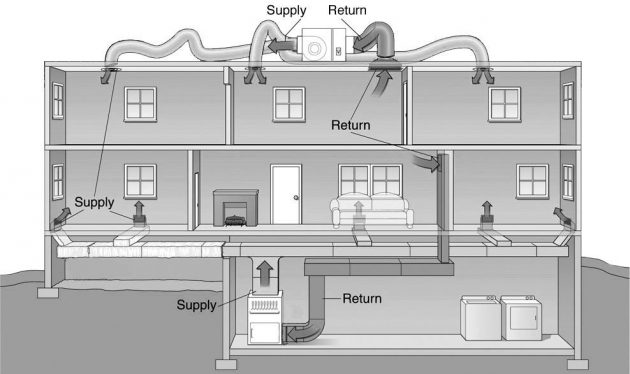
This image is property of www.architectureartdesigns.com.
5. Health and Safety Benefits
5.1 Disease Prevention
Proper HVAC systems contribute to disease prevention by controlling the spread of airborne illnesses. HVAC systems can incorporate features like improved air filtration, UV germicidal lights, and humidity control, which help in eliminating pathogens and reducing the risk of transmission. By filtering out bacteria, viruses, and other harmful particles, HVAC systems create a healthier indoor environment.
5.2 Allergen Control
Allergens such as dust mites, pollen, and pet dander can trigger allergies and respiratory problems. HVAC systems with effective air filtration and purification systems help control and remove these allergens from the air, minimizing discomfort for allergy sufferers. By reducing allergens, HVAC systems promote a healthier indoor environment for occupants.
5.3 Carbon Monoxide Detection
Carbon monoxide is a poisonous gas that is a byproduct of combustion processes. HVAC systems can incorporate carbon monoxide detectors and alarms to ensure the safety of occupants. These detectors can detect even small quantities of carbon monoxide and sound an alert, allowing occupants to evacuate and prevent potential harm due to this odorless and colorless gas.
6. Equipment Longevity and Maintenance
6.1 Regular Maintenance
Regular maintenance is essential for ensuring the longevity and efficient operation of HVAC systems. Routine inspections, cleaning, and servicing can identify potential issues before they become major problems. By investing in regular maintenance, building owners can extend the lifespan of their HVAC equipment, reduce the risk of sudden breakdowns, and ensure optimal performance.
6.2 Equipment Lifespan
Proper maintenance and care of HVAC systems contribute to their extended lifespan. HVAC systems are designed to last for several years, but neglecting maintenance can result in premature equipment failure. Regular cleaning, replacing filters, lubricating moving parts, and other maintenance tasks can significantly enhance the lifespan of HVAC systems, reducing the need for frequent replacements.
6.3 Cost-effective Repairs
Ignoring maintenance can lead to costly repairs in the long run. By investing in regular maintenance, building owners can identify potential issues early on, allowing them to be addressed before they escalate into major problems. Proactive repairs and timely replacements of worn-out components help prevent expensive breakdowns and keep repair costs under control.
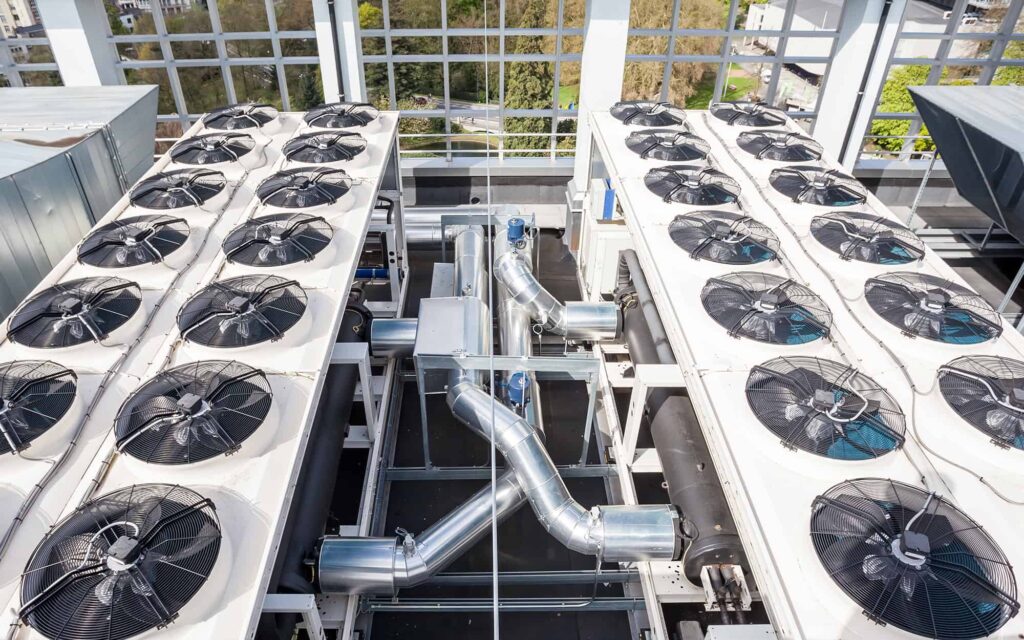
This image is property of www.reacthvac.com.
7. Sustainability and Environmental Impact
7.1 Energy Conservation
The energy conservation capabilities of HVAC systems are crucial for promoting sustainability in modern buildings. By utilizing advanced technologies, such as energy-efficient heat pumps and smart controls, HVAC systems can significantly reduce energy consumption. The conservation of energy not only benefits building owners through cost savings but also contributes to a more sustainable future by reducing overall energy demand.
7.2 Reduction of Greenhouse Gas Emissions
Greenhouse gas emissions, primarily carbon dioxide, contribute to climate change. HVAC systems that prioritize energy efficiency help reduce greenhouse gas emissions by consuming less energy and reducing the reliance on fossil fuels. By adopting energy-efficient HVAC systems, building owners can contribute to mitigating the adverse effects of climate change.
7.3 Use of Eco-friendly Refrigerants
Refrigerants used in HVAC systems can significantly impact the environment. Traditional refrigerants, such as chlorofluorocarbons (CFCs) and hydrochlorofluorocarbons (HCFCs), are known to deplete the ozone layer and contribute to global warming. Modern HVAC systems use eco-friendly refrigerants, such as hydrofluorocarbons (HFCs), which have a lower impact on the ozone layer and reduced greenhouse gas potential.
8. Reduced Energy Consumption in HVAC Systems
8.1 Efficient Equipment Design
Efficient equipment design plays a crucial role in reducing energy consumption in HVAC systems. Technological advancements have led to the development of energy-efficient heat pumps, variable speed motors, and improved insulation materials. These innovations ensure that HVAC systems operate optimally, consuming less energy while maintaining desired indoor conditions.
8.2 Programmable Thermostats
Programmable thermostats enable users to customize temperature settings based on occupancy patterns and preferences. By setting different temperature profiles for different times of the day or specific zones within a building, users can conserve energy and reduce unnecessary heating or cooling. Programmable thermostats maximize energy efficiency by maintaining comfortable temperatures only when needed.
8.3 Energy Recovery Ventilation
Energy recovery ventilation (ERV) systems recover heat or coolness from the outgoing air and transfer it to the incoming fresh air. This process reduces heating or cooling requirements, resulting in energy savings. ERV systems also help maintain indoor air quality by exchanging stale indoor air with fresh outdoor air, while recovering the energy from the outgoing air.
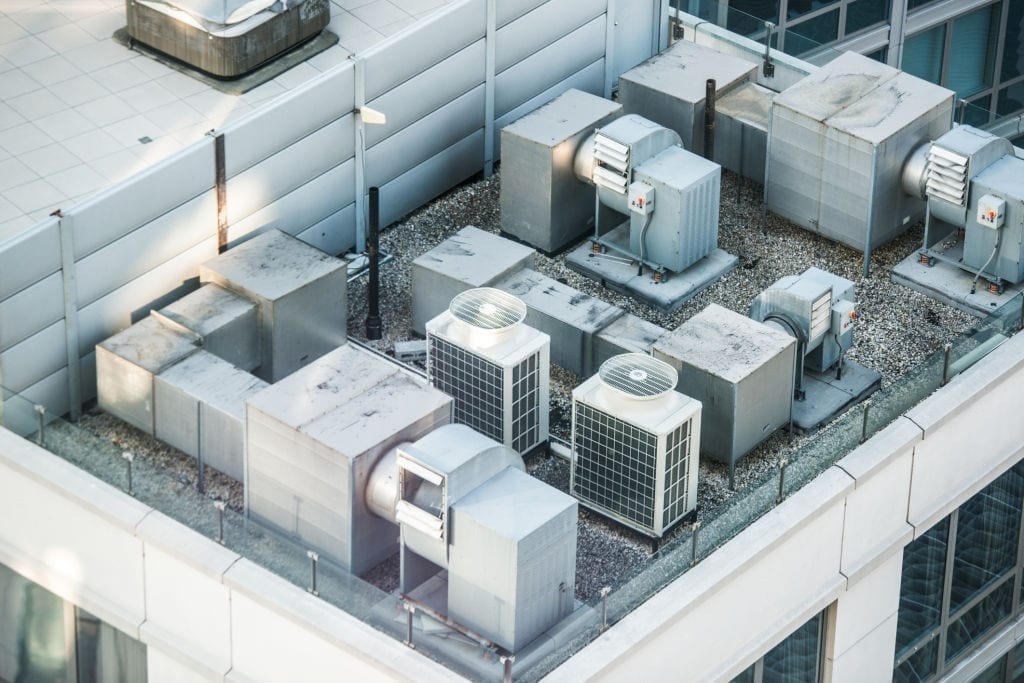
This image is property of greenleafair.com.
9. Cost Savings with HVAC Systems
9.1 Lower Utility Bills
Investing in energy-efficient HVAC systems leads to lower utility bills. By consuming less energy, these systems reduce the overall energy demand and enable building owners to save money on heating and cooling expenses. The cost savings from lower utility bills can offset the initial investment in energy-efficient HVAC systems over time.
9.2 Equipment Longevity
Energy-efficient HVAC systems often come with advanced technologies and components that are designed for durability and longevity. These systems operate more efficiently, experience less wear and tear, and require less frequent repairs or replacements. The extended lifespan of energy-efficient HVAC systems contributes to cost savings for building owners by reducing the need for frequent equipment replacements.
9.3 Tax Credits and Rebates
Many governments and utility companies offer tax credits and rebates as incentives for building owners who invest in energy-efficient HVAC systems. These financial incentives help offset the initial cost of purchasing and installing energy-efficient equipment. Building owners can take advantage of these programs to further enhance their cost savings and encourage the adoption of energy-efficient HVAC systems.
10. Importance of Indoor Air Quality
10.1 Allergen and Pollutant Removal
Indoor air quality has a direct impact on the health and comfort of occupants. HVAC systems contribute to maintaining good indoor air quality by effectively removing allergens and pollutants from the air. Proper air filtration and purification systems capture and eliminate particles such as dust, pollen, pet dander, and mold spores, improving the overall air quality within a building.
10.2 Preventing Sick Building Syndrome
Sick Building Syndrome (SBS) refers to a condition where occupants experience acute health effects due to poor indoor air quality. Symptoms include headaches, dizziness, eye irritation, and difficulty breathing. HVAC systems with effective ventilation, air filtration, and humidity control help prevent SBS by ensuring a continuous supply of fresh air, minimizing pollutants, and regulating indoor environmental conditions.
10.3 Condensation and Mold Control
Excessive indoor humidity can lead to condensation and mold growth, posing health risks to occupants. HVAC systems with humidity control capabilities help regulate indoor moisture levels, reducing the likelihood of condensation and mold formation. By preventing excess humidity, these systems contribute to a healthier indoor environment and reduce the need for costly mold remediation.
In conclusion, HVAC systems play a crucial role in modern buildings by providing energy efficiency, maintaining indoor air quality, ensuring comfort and productivity, promoting health and safety, enhancing equipment longevity, and reducing environmental impact. Building owners and occupants alike benefit from investing in state-of-the-art HVAC systems that prioritize efficiency, sustainability, and the well-being of all occupants. So, when it comes to HVAC systems, remember the importance they hold in making your building energy-efficient, safe, and comfortable.
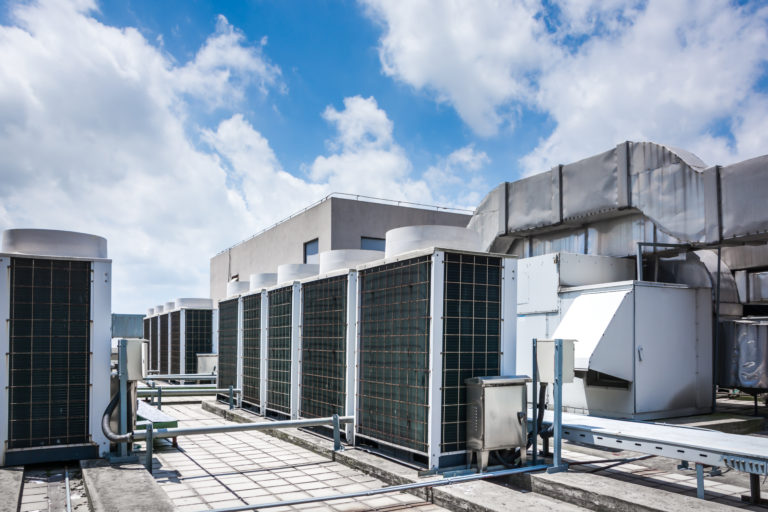
This image is property of www.csginc.com.


